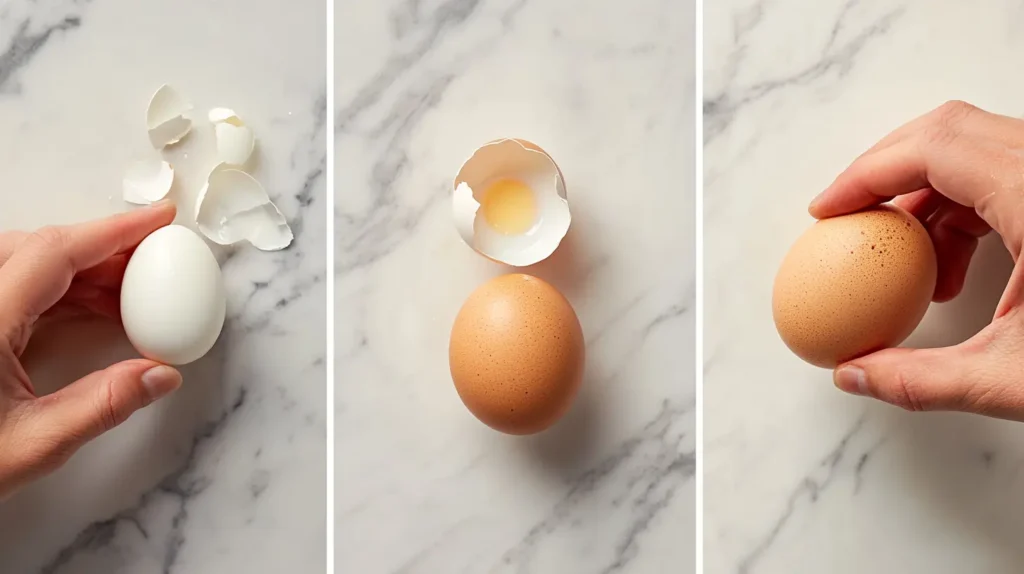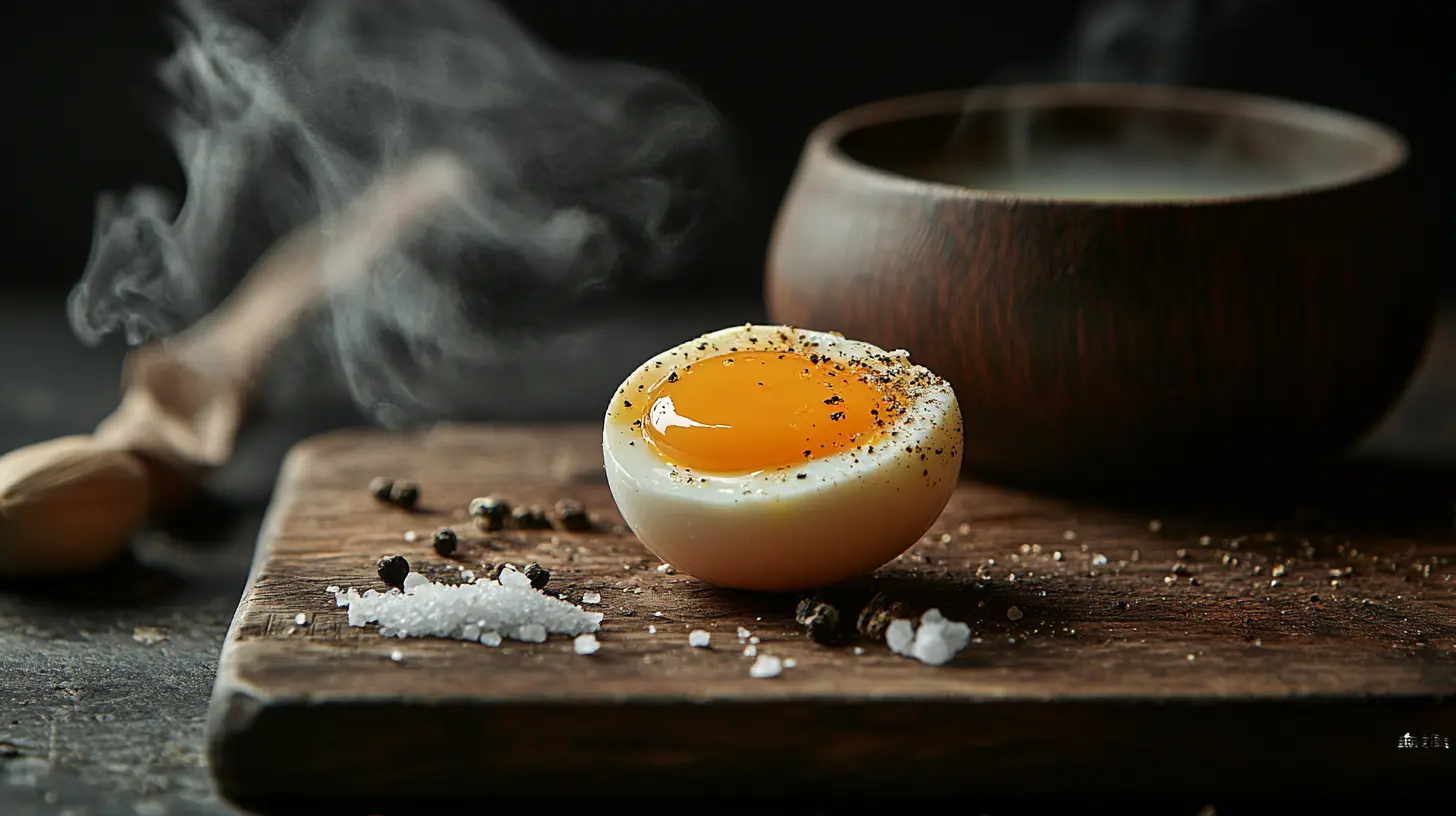Soft-boiled eggs are a timeless kitchen favorite, celebrated for their velvety yolks and tender whites. Whether you’re crafting the perfect ramen, topping a salad, or just enjoying a simple breakfast, the soft-boiled egg adds a touch of elegance to any dish. But here’s the million-dollar question: Is it 3 minutes for a soft-boiled egg? While many swear by this timeframe, achieving the ideal egg depends on factors like size, freshness, and technique.
In this article, we’ll explore everything you need to know about soft-boiled eggs, from understanding the process to expert tips and mouthwatering recipes. Let’s crack into it, starting with the basics.
Understanding Soft-Boiled Eggs
What is a Soft-Boiled Egg?
A soft-boiled egg strikes the perfect balance between firm whites and a creamy, runny yolk. It’s not as set as a hard-boiled egg and not as liquid as a poached egg. This delicate texture makes it an essential component for dishes like ramen or avocado toast. But what really makes a soft-boiled egg special is its versatility—whether you eat it plain or elevate a recipe with its unique texture and taste.
Why Cooking Time Matters
Timing is everything when cooking a soft-boiled egg. Just a minute too long, and you end up with a yolk that’s more set than you’d like. Too short, and you’ll have an undercooked egg that’s difficult to peel and serve. Is it 3 minutes for a soft-boiled egg? For many, it’s the sweet spot. But as you’ll see later, factors like egg size, freshness, and even your altitude can play a role in determining the ideal cooking time.
How Soft-Boiled Eggs Differ from Other Cooking Methods
Soft-boiled eggs fall into a unique category of egg preparation. Unlike fried or scrambled eggs, which rely on oil and constant movement, or poached eggs that are cooked in water without their shells, soft-boiled eggs are cooked gently in their shells. This method protects the delicate egg while ensuring even cooking. Additionally, unlike hard-boiled eggs, which have a fully set yolk, soft-boiled eggs retain that sought-after golden, oozy center.
Soft-boiled eggs are a culinary art, and understanding these nuances is key to mastering them. In the next section, we’ll dig into whether the famous 3-minute rule holds up under scrutiny.
Timing: Is 3 Minutes the Golden Rule?
The Role of Egg Size and Freshness in Cooking Time
When it comes to cooking eggs, size and freshness are more important than you might think. Larger eggs naturally take a bit longer to cook because there’s more egg white and yolk to heat through. Similarly, fresh eggs have a thicker white that may take longer to set compared to older eggs. This is why the question “Is it 3 minutes for a soft boiled egg?” doesn’t always have a straightforward answer—it depends on these variables. For smaller eggs, 3 minutes might give you perfection. With extra-large eggs, though, you might need closer to 4 minutes.
Freshness matters too, not just for flavor but for texture. Fresher eggs have a tighter inner membrane, which can impact how heat penetrates. If you’re unsure about your eggs’ size or freshness, adjust your timing slightly to avoid disappointment.
Standard 3-Minute Soft-Boiling Method Explained
The classic 3-minute rule is a tried-and-true method for making soft-boiled eggs. Here’s how it works:
- Bring a pot of water to a rolling boil.
- Carefully lower your eggs into the water using a spoon to prevent cracks.
- Reduce the heat slightly to maintain a gentle boil, then set your timer for exactly 3 minutes.
Once the timer beeps, quickly transfer the eggs to an ice bath. This stops the cooking process and makes peeling easier. But remember, this method assumes medium-sized eggs at sea level. If your eggs are extra-large, jumbo, or even duck eggs, you’ll need to add more time.
Variations in Cooking Time Based on Preferences
Cooking time isn’t just about the science—it’s about personal taste. Some people prefer a slightly firmer yolk for dipping toast, while others want their yolks completely runny. If you like a more custardy texture, try extending the cooking time to 4 minutes. Still wondering, “Is it 3 minutes for a soft boiled egg?” Think of it as a baseline rather than a rule.
If you’re experimenting, start with 3 minutes and adjust in 30-second increments. This trial-and-error approach will help you find the timing that suits your taste buds.
Step-by-Step Guide to Cooking the Perfect Soft-Boiled Egg

Preparation: What You Need to Start
Cooking the perfect soft-boiled egg begins with proper preparation. Gather your tools: a small saucepan, a slotted spoon, and a bowl of ice water. For best results, use room-temperature eggs; this helps them cook evenly and prevents cracking when placed in hot water. Remember, timing is crucial, so keep a reliable timer handy to avoid guessing.
You might still wonder, “Is it 3 minutes for a soft boiled egg?” The short answer is yes, for most medium-sized eggs. But as we’ll see, following a few extra steps can make all the difference.
The Boiling Process: Achieving Precision
Here’s the step-by-step process to soft-boil eggs to perfection:
- Fill a small pot with enough water to cover the eggs by an inch.
- Bring the water to a rolling boil.
- Lower the eggs into the pot using a slotted spoon to avoid cracking.
- Once the eggs are in, reduce the heat to maintain a gentle boil and start your timer.
For medium-sized eggs, 3 minutes will usually deliver a silky yolk with firm whites. Larger eggs may require 3 ½ to 4 minutes. Once done, transfer the eggs immediately to an ice bath. This halts the cooking process and makes peeling much easier.
Tips for Peeling Soft-Boiled Eggs Without Breaking
Peeling a soft-boiled egg can be tricky, especially with its delicate whites. The key is patience:
- Gently tap the egg on a hard surface to create cracks all around.
- Roll it lightly between your hands to loosen the shell.
- Start peeling at the wider end, where there’s an air pocket. This often helps remove the shell more cleanly.
For stubborn shells, peel the egg under running water. The water slips between the egg white and the shell, helping it come off without tearing.
What to Do If Your Eggs Are Undercooked or Overcooked
So your 3-minute egg didn’t turn out perfect—don’t panic. If it’s undercooked, pop it back into the boiling water for another 30-60 seconds. For overcooked eggs, try not to waste them! Use them in recipes like egg salad, where texture matters less. Either way, every attempt gets you closer to soft-boiled perfection.
By mastering these steps, you’ll soon know whether 3 minutes for a soft boiled egg is your ideal method—or just the starting point. Next, we’ll share pro tips to elevate your egg game further!
Expert Recommendations and Tips for Beginners
Professional Insights from Culinary Experts
Culinary experts agree that soft-boiling eggs is an art that combines timing, technique, and patience. While the 3-minute method is a popular approach, chefs often stress the importance of tailoring the process to your kitchen setup. Factors like water temperature, the number of eggs, and even the pot you use can influence the outcome. Wondering “Is it 3 minutes for a soft boiled egg?” Experts suggest experimenting with slight variations to achieve your perfect egg.
For instance, some chefs recommend bringing eggs to room temperature before boiling, which helps maintain consistency. Others suggest slightly lowering the heat after placing the eggs in the water to avoid jarring cracks or uneven cooking.
Common Mistakes to Avoid When Soft-Boiling Eggs
Even experienced cooks can make mistakes. Here are the most common pitfalls and how to avoid them:
- Skipping the ice bath: Without it, eggs may overcook, leaving you with a firmer yolk than desired.
- Overcrowding the pot: Too many eggs in the pot can drop the water temperature, disrupting the cooking process.
- Using eggs straight from the fridge: Cold eggs are more prone to cracking and may cook unevenly.
By keeping these tips in mind, you’ll master the soft-boiled egg in no time.
For more delicious egg recipes, check out our baked egg casserole article here.
Creative Recipes Featuring Soft-Boiled Eggs
Ramen with Soft-Boiled Eggs: A Popular Pairing
Ramen and soft-boiled eggs are a match made in heaven. The rich, runny yolk adds depth to the broth, while the firm whites create a satisfying texture. To make ramen eggs, simply marinate peeled soft-boiled eggs in a mixture of soy sauce, mirin, and sugar for a few hours. It’s a simple way to elevate your soup game.
Salads and Bowls: Adding Texture and Flavor with Soft-Boiled Eggs
Soft-boiled eggs are a quick way to add protein and creaminess to salads or grain bowls. Pair them with fresh greens, quinoa, or roasted veggies for a balanced meal. Their delicate yolk serves as a built-in dressing, blending beautifully with other ingredients.
Soft-Boiled Eggs as a Breakfast Staple
Sometimes, simplicity is best. A soft-boiled egg, seasoned with salt and pepper, makes for a classic breakfast. Pair it with toast, avocado, or even smoked salmon for a dish that feels both comforting and luxurious. If you’re still asking, “Is it 3 minutes for a soft boiled egg?”, remember that a little experimenting will lead you to your perfect breakfast companion.
For more ideas on incorporating eggs into your meals, explore our article on what makes breakfast casseroles soggy and how to fix them here.
FAQs About Cooking Soft-Boiled Eggs
Does 3 Minutes Work for All Egg Sizes?
A common question is, “Is it 3 minutes for a soft boiled egg?” While 3 minutes is a great starting point, it doesn’t always work for every egg size. Medium-sized eggs tend to cook perfectly in 3 minutes, resulting in firm whites and runny yolks. However, larger eggs might need closer to 4 minutes to achieve the same consistency. On the other hand, small eggs may cook in as little as 2 ½ minutes.
If you’re unsure, start with 3 minutes and adjust the time based on the egg’s size. Remember, testing different timings can help you perfect your method for your favorite egg dishes.
What is the Best Water Temperature for Soft-Boiling?
The water temperature is another critical factor in achieving soft-boiled egg perfection. Always bring the water to a rolling boil before adding the eggs. Once the eggs are in, lower the heat slightly to maintain a gentle boil. This ensures even cooking without causing cracks in the shell. Using water that’s too hot or simmering too softly can result in unevenly cooked eggs.
Adding eggs directly from the fridge into boiling water can sometimes lead to cracks due to the temperature difference. To avoid this, let your eggs come to room temperature beforehand or place them in warm water for a few minutes.
Can You Reheat Soft-Boiled Eggs?
Yes, you can reheat soft-boiled eggs, but it requires care to avoid overcooking. Place the eggs in a bowl of hot water for 1-2 minutes to gently warm them without altering the yolk’s texture. Avoid microwaving, as this can cause the yolk to explode or become rubbery.
Are Soft-Boiled Eggs Safe to Eat?
Soft-boiled eggs are safe to eat as long as they’re cooked properly. The whites should be set to kill any potential bacteria, while the yolk remains runny. If you’re concerned about food safety, opt for pasteurized eggs to reduce the risk of contamination.
By addressing these common concerns, you can confidently tackle the question, “Is it 3 minutes for a soft boiled egg?” and enjoy this versatile kitchen staple in any meal.

